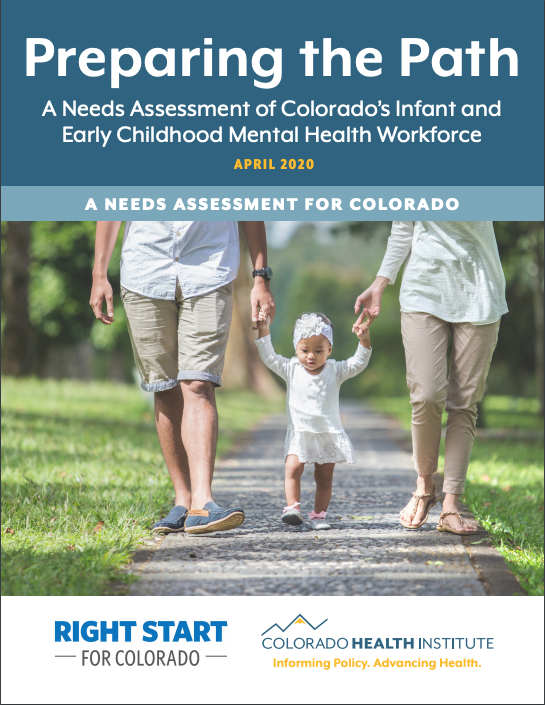
Preparing the Path
Introduction of Full Report
A half century of research on the science of infant mental health inexorably asserts that early experiences matter and provide the foundation upon which all future development rests. Sound mental health is built early in life, as early experiences with nurturing and responsive caregivers shape the architecture of the developing brain.
Indeed, findings from neurobiology, genetics, and social science research are unequivocal that the first 1,000 days (the period from conception to the end of the second year of life) and the period to the end of age three are foundational in terms of brain development.
There is no time more pivotal to the wiring of the brain, the sculpting of neurocircuitry or the scripting of unconscious ‘internal working models’ of intimate attachment relationships, than the first 3-5 years of life. The science of early childhood provides us a powerful framework for understanding how development unfolds, how it can be derailed, and how to get it back on track when it is disrupted.
Data also informs us that from a financial perspective, the most economically efficient time to develop skills and social abilities is in the very early years when developmental supports are most effective. Early investment in the development of very young children’s cognitive and social-emotional competence produces the greatest return on investment than investments made at any other age. Without supportive services and appropriate clinical intervention, early childhood adversity can lead to lifelong impairments in learning, behavior, and both mental and physical health.
Despite this scientific knowledge, many still think of infants and young children as incapable of understanding or remembering adverse life events and, therefore, incapable of experiencing psychological pain. The field of infant mental health knows this not to be true and indeed it is the recognition of an infant’s ability to experience psychological suffering in the here and now that underlies much of our field’s strivings. Young children can and do experience mental health disturbances, yet their unique needs, particularly those of infants and toddlers are often overlooked in mental health policy and health care delivery systems.
Colorado is at the forefront among states in advancing policies and practices that promote innovative, collaborative efforts to support families with young children to be healthy and to thrive. This includes public and private investments in Early Childhood Mental Health (ECMH) consultation; an Early Childhood Mental Health Strategic Plan to guide public and private financing, systems coordination, and workforce development; a Postpartum Support International state chapter; and the success of Colorado’s community mental health centers in securing federal grants focused on infant and early childhood mental health (IECMH) services.
This commitment is significant given Colorado’s growing child population. About 400,000 children ages birth to five live in Colorado, and by 2025 that number is expected to increase to about 423,000.
Despite these advances, Colorado, like many states, has a statewide shortage of mental health professionals with IECMH expertise who can serve the young families of Colorado.
Right Start for Colorado is responding to these opportunities and needs. A five-year initiative led by the Mental Health Center of Denver (MHCD) and funded by the Substance Abuse and Mental Health Services Administration and private philanthropic foundations, Right Start for Colorado has two main goals:
1. Address Colorado’s statewide shortage of mental health professionals with IECMH expertise and improve the quality of mental health services available to young children and families.
2. Support allied professionals who routinely work with the ages birth to five population (i.e., child welfare workers, home visitors, pediatricians/ primary care providers, early interventionists, public health nurses, etc.) to develop greater awareness of IECMH and feel competent in identifying and referring very young children for appropriate assessment and intervention.
The initiative is providing needed resources to build Colorado’s IECMH workforce by offering free or subsidized trainings to mental health and allied professionals, with a strong focus on the dissemination of relationship-based, developmentally specific, evidence-based practices. As the foundation of a child’s health is being established, interventions by IECMH professionals trained in evidence-based practices are an effective and essential way to help young children regain developmental momentum and ensure future healthy emotional development..
The full report is on the MHCD website. Click on the report cover to download the PDF file.

